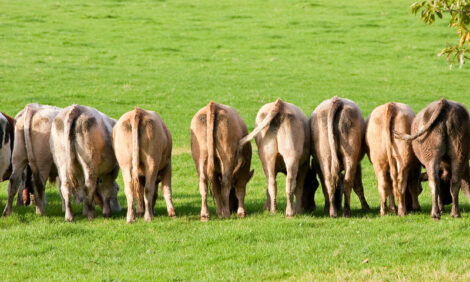



IdentiGEN Founder Pushes for DNA Traceability
US - In order for meat producers and retailers to satisfy anticipated consumer desires to avoid meat and milk from cloned animals, access to DNA from every unique clone should be made public so that DNA traceability technology can be used, according to Patrick Cunningham of Dublin's Trinity College, Chief Scientific Adviser to the Government of Ireland and also Co-founder and Chairman of IdentiGEN Ltd.,On Jan. 15, 2008, the U.S. Food and Drug Administration announced that meat and milk from cloned animals are safe to eat. There are a number of companies known to be producing cloned animals for the livestock industry, and some are already marketing semen from clones.
Initial consumer reaction to the prospect of consuming meat and milk from cloned animals has been negative. A 2007 national Consumers Union poll found that 89 percent of consumers want labels on food products from clones. On Jan. 24, California State Senator Carol Migden introduced a bill requiring all food products from cloned animals and their offspring to display clear and prominent labeling.
DNA traceability will be crucial for grocery retailers and meat producers who want to assure concerned consumers that their products are clone-free, Dr. Cunningham said. But, he added, it will be difficult to do so without access to DNA from cloned animals. Clone producers currently keep DNA data from cloned animals proprietary.
In his presentation, entitled "Dolly for Dinner," Dr. Cunningham predicted that at least some producers and retailers will want to reassure consumers that their products are clone-free -- in which case they may be required to back up their claims with credible evidence such as DNA traceability. International experience has shown that the animal ear-tags, which are traditionally used for animal identification, may be lost or removed and do not offer a means to trace the products derived from the animal.
Once a DNA database of clones is established, a sampling and profiling program can be applied to any supply chain to verify whether clones are present, he said.
IdentiGEN was founded in 1996 by a group of geneticists from Ireland’s Trinity College, who developed DNA TraceBack, the world’s first DNA-based meat traceability system proven to unequivocally trace the identity of meat back to its source. IdentiGEN's DNA TraceBack is being used by major grocery retailers and meat producers in Ireland and the U.K. to support marketing of branded meat, verify country of origin and validate product attributes. It also can also be used to support seamless and fast traceability of fresh meat in the event of a product recall.
TheCattleSite News Desk


